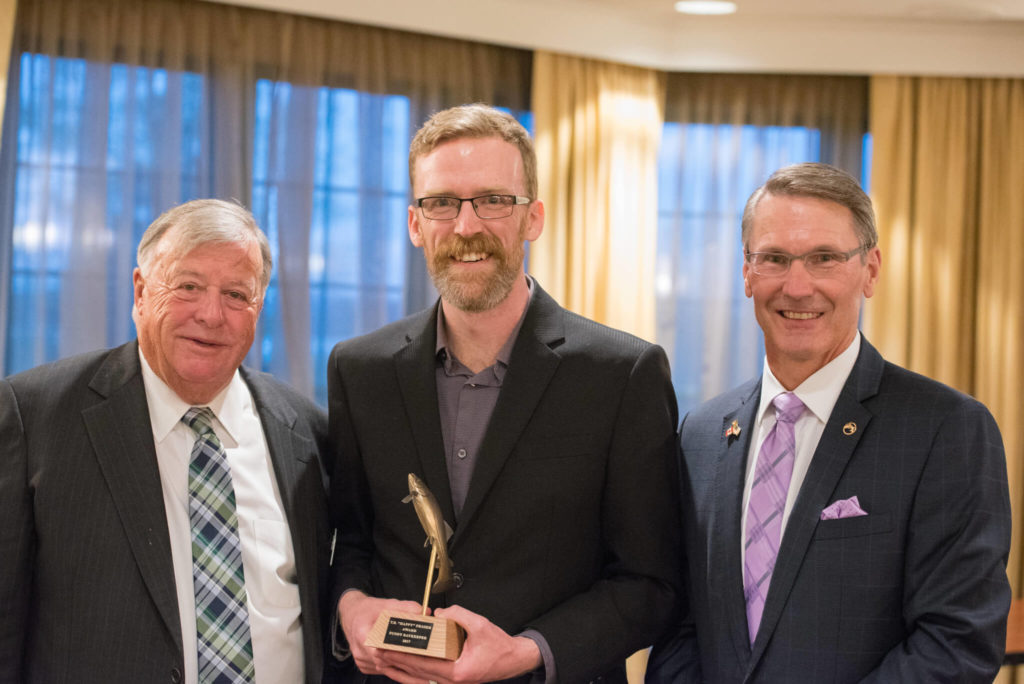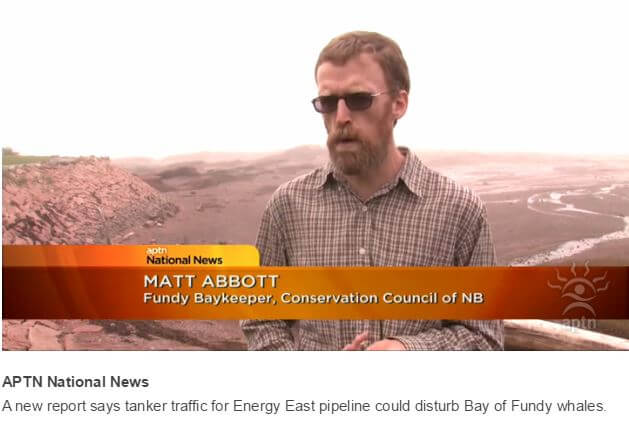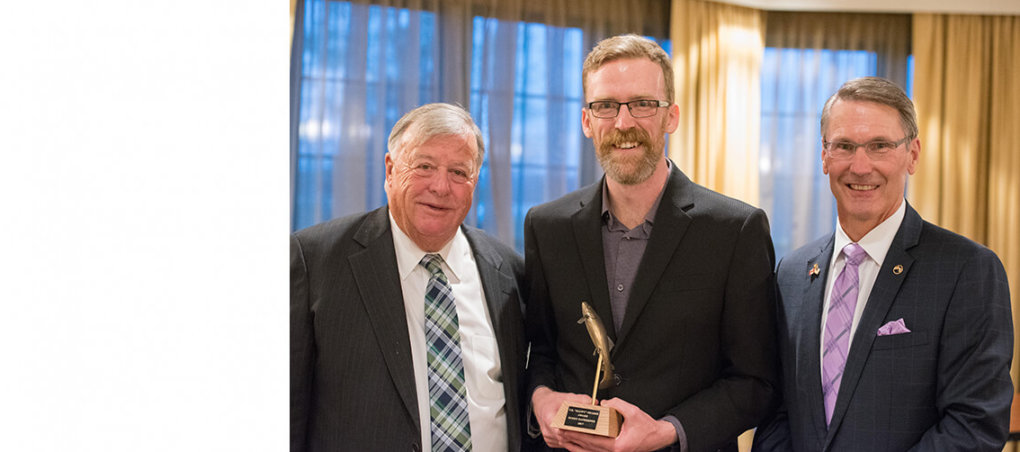
Our Fundy Baykeeper has been awarded the Atlantic Salmon Federation’s highest honour for outstanding contributions to the conservation of Atlantic Canada’s most iconic fish.
The T.B. ‘Happy’ Fraser Award has been given since 1975 to an individual or organization that displays a long-term commitment to wild Atlantic salmon conservation on a regional or national level.
Matt Abbott accepted the award on behalf of the Conservation Council during a gala ceremony May 17 in St. Andrews, where he’s led the Fundy Baykeeper program since 2011.
“I’m humbled our Fundy Baykeeper program is now counted among the country’s top champions of the mighty Atlantic salmon,” Abbott says.
“This award is the result of a strong, decades-long tradition of marine conservation at the Conservation Council. I’m proud of the work my colleagues and I have done over many years to fight for the restoration and protection of critical habitat so wild Atlantic salmon remain a revered and important part of our province’s identity for generations to come.”
Abbott has worked closely with ASF staff on issues in the Bay of Fundy. The bay’s vast network of rivers — such as the Petitcodiac, St. John, Big Salmon and Magaguadavic — used to support annual wild salmon runs of more than 100,000 fish.
Dam and causeway construction in the 20th century, along with industrial pollution, took its toll. In the late 80s and early 90s, marine survival rates of Atlantic salmon declined and open net-pen salmon aquaculture in the Bay of Fundy emerged as a threat.
“My program is concerned with the health of the bay overall, and ASF’s goal is to conserve wild Atlantic salmon. Our work overlaps in many ways,” Abbott says.

The ‘Happy’ Fraser Award is a fitting honour for our Marine Conservation program’s flagship component. After all, it was a deep appreciation for the wonders of the Bay of Fundy — and a growing concern about its treatment by industry — that sparked the Marine Program at CCNB.
Since the program’s establishment in 1990, the Conservation Council has remained the leading authority on healthy ecosystems in the Bay of Fundy and marine environments along the coast of New Brunswick and into the Gulf of Maine. The Fundy Baykeeper, a member of the Waterkeeper Alliance, was added to the marine program in 2003.
The Conservation Council was the first to raise widespread awareness among citizens, environmental organizations, and government institutions to the threats of pollution and other challenges facing the region’s marine habitats, and through the continuous, focused attention of its Marine Program, has been key to advancing solutions and superior pollution controls for the past 27 years.
Featuring the world’s highest tides, sprawling salt marshes, and rich upwelling zones, the Bay of Fundy is home to an abundance of dolphins, porpoise, fish and seal, vast swathes of undeveloped shoreline supporting more than one million migratory shorebirds each year, some of the largest-known Horse Mussel reefs in the world, and up to 12 species of whales, including the North Atlantic Right whale — one of the most endangered on the planet.

And yet, for decades, this critical environment went without strong protections to keep it healthy. Pollution discharge hotspots wrapped the coastline of the bay, industrial development and the spread of tidal barriers caused severe habitat loss, and dramatic changes in coastal fisheries challenged many communities dependent on the Bay of Fundy-Gulf of Maine system.
The Marine Program and Fundy Baykeeper have addressed these issues through a combination of rigorous research, the development of meaningful relationships with key groups like fishermen and fisheries associations, government agencies and departments, coastal communities and foundations devoted to the preservation and restoration of natural habitats, and through the dedication of staff to achieve results over time.
As Marine Conservation program founder, Janice Harvey, puts it: “Victories come at the end of 10 years. It often takes that long, and it has to be sustained. That’s the benefit of having a long-standing organization like the Conservation Council, with the continuity and consistency and persistence to just keep at it until you get what is needed.”
-30-
- Learn more about the history and accomplishments of our Marine Conservation Program.
- Stay tuned for the June issue of our membership magazine, EcoAlert, for a feature story on the history of the Marine program and our work to protect New Brunswick’s precious coastlines from pollution and other challenges.
- Read the press release on the Fundy Baykeeper receiving the T.B. ‘Happy’ Fraser Award.

